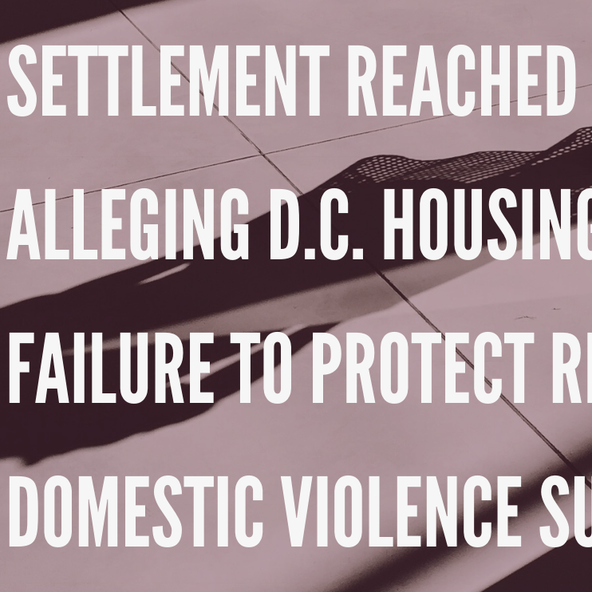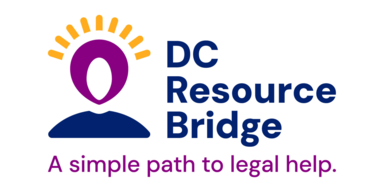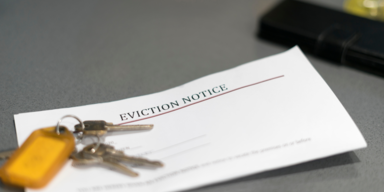
Last week, the Legal Aid Society of the District of Columbia and Alston & Bird LLP announced that they entered into a settlement agreement with the D.C. Housing Authority (“DCHA”) to resolve a federal lawsuit filed last year to seek compliance with local and federal laws and regulations that protect the rights of survivors of domestic violence who participate in housing subsidy programs. The complaint, brought on behalf of an individual survivor of domestic violence (whom we will refer to as Jane Smith), alleged that the agency violated her constitutional due process rights and the Violence Against Women Act (“VAWA”) by terminating her housing assistance and denying her a hearing concerning her entitlement to, and the appropriate amount of, the voucher assistance.
Ms. Smith had claimed that DCHA failed to provide her with continuing housing assistance after she experienced domestic violence at the hands of her then-husband, who had left the household. She also filed a motion for a preliminary injunction, requesting that DCHA immediately restore her voucher, recalculate her subsidy based on the new household income (excluding the abuser’s income), and pay her landlord the back rent that it had failed to pay, which had placed her at risk of eviction.
Under VAWA, if a family receiving housing assistance breaks up as a result of domestic violence, the local public housing authority must ensure that the survivor retains assistance. In Ms. Smith’s situation, however, DCHA denied her request for continued assistance and her request for a fair hearing. Ms. Smith filed this case to enforce her right to continue receiving assistance under DCHA’s Housing Choice Voucher Program as a victim of domestic violence, and to raise awareness in order to help other survivors of domestic violence who might experience similar issues with DCHA leading to housing instability and potential homelessness after a domestic violence incident.
Shortly after Ms. Smith filed her complaint and motion for preliminary injunction, DCHA provided her with the full relief she requested. In addition, on March 27, 2020, DCHA issued proposed revised regulations for adoption under the Violence Against Women Act and the Violence Against Women Reauthorization Act of 1993. Legal Aid submitted comments, joined by Bread for the City and the Washington Legal Clinic for the Homeless, as did a number of other advocates.
In the settlement that the parties reached, DCHA agreed to establish a new email address—hcvp.vawa@dchousing.org—that current recipients of housing assistance and their advocates can use to resolve, short of litigation, issues related to the agency’s obligations under VAWA. The email address is live now. The settlement also included monetary compensation to the plaintiff, as well as attorneys’ fees.
Legal Aid commends DCHA for working together to reach this settlement agreement. Ms. Smith, who is delighted that her case is now resolved, said she never wants another survivor of violence to “go through what [she] went through.” And we share in that aspiration.
Get Help 24/7 from the National Sexual Violence Hotline at 1-800-656-4673.




